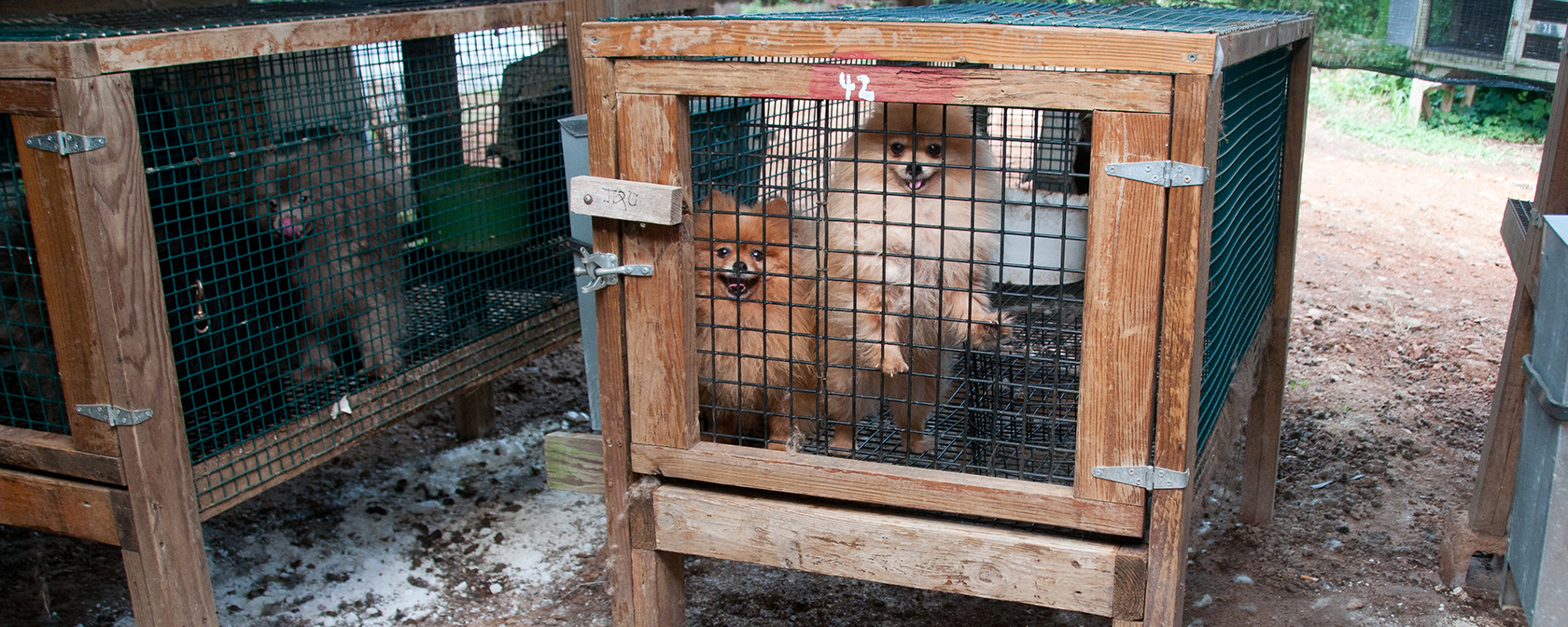Yesterday was a big day on Capitol Hill for animals with the Preventing Future Pandemics Act (H.R. 8433/S. 4749) introduced in the House and the Senate, and the Puppy Protection Act (S. 4757) introduced in the Senate.
The Preventing Future Pandemics Act directly tackles the dangerous convergence between zoonotic disease and human-wildlife interactions at live wildlife markets around the world. Introduced in the Senate by Sens. John Cornyn, R-Tex., and Cory Booker, D-N.J., and in the House by Reps. Mike Quigley, D-Ill., and Fred Upton, R-Mich., the measure seeks to address the negative animal welfare consequences and human health risks of wildlife trade by prohibiting the import, export, and sales of certain live wildlife for the primary purpose of human consumption in the United States.
Preceding the novel coronavirus, wildlife markets have been implicated in the spread of Severe Acute Respiratory Syndrome (SARS), bird flu, and Ebola. And while attention has mostly focused on the wildlife trade in China as a source of COVID-19, there is a need for decisive action against the trade in other nations as well, including the United States. Among other animals, live pigeons, turtles, and frogs—including red eared slider turtles and bullfrogs imported from China—are sold at food markets in U.S. cities. If we are to successfully press other countries to close their live wildlife markets, we need to do so here.
The Preventing Future Pandemics Act also includes support for:
- U.S. Fish and Wildlife Service and U.S. Agency for International Development programs to address the causes of zoonotic disease outbreaks and strengthen transition to diversified alternative sources of protein in communities that rely on the consumption of wildlife;
- Global collaboration to end commercial, terrestrial wildlife markets, the international trade for human consumption, and associated wildlife trafficking;
- Stronger law enforcement operations and economic, diplomatic, or other penalties for countries that continue to facilitate wildlife markets or wildlife trafficking.
The second priority bill introduced yesterday was the Puppy Protection Act, led by Sen. Dick Durbin, D-Ill., as a companion to H.R. 2442, which was introduced in the House last year and currently has 170 bipartisan cosponsors. This legislation aims to strengthen baseline standards for commercial dog dealers regulated by the U.S. Department of Agriculture (USDA) under the Animal Welfare Act (AWA).
Despite USDA finalizing some reforms last May, the current AWA regulations are still grossly insufficient to meet the social, physical, and behavioral needs of dogs. The Puppy Protection Act would dramatically increase the level of care for tens of thousands of dogs in the United States who are kept by commercial breeders that sell to pet stores, middleman dealers, and/or online, by building upon the USDA’s final rule and requiring additional critical changes to the regulation of such breeders, including:
- Prohibitions on the stacking of cages and the use of wire flooring, and a requirement that breeders provide dogs with solid flooring and more space, with room to run;
- Prohibitions on the keeping of dogs in freezing or blistering hot conditions;
- Requiring that injured and sick dogs be promptly examined by a veterinarian;
- Specific limits on breeding age and frequency to allow mother dogs to rest between litters of puppies;
- Requiring breeders to feed dogs at least twice per day; and
- Requiring that breeders attempt to re-home retired breeding dogs instead of killing them.
There are few areas in which the Humane Society Legislative Fund and the Humane Society of the United States have made stronger investments than in the campaign to stop puppy mills. These campaigns include the annual publication of the “Horrible Hundred” report that has led directly to the closure of some of the worst puppy mills, cruelty convictions for breeders who violate the law, the passage of numerous new local ordinances that ban the sale of puppy mill dogs in pet stores, and the successful publication of USDA’s final rule to strengthen dog care standards last May.
“We must ensure that every breeder is raising dogs in decent, humane conditions and that these dogs receive the proper veterinary care,” said Senator Durbin. “I’m proud to lead this effort in protecting the welfare of animals when breeders have escaped proper oversight and inspection in the past. The Puppy Protection Act is a step forward in ensuring that these breeding dogs and their puppies live a healthy life.”
Any day that sees the introduction of two priority bills to protect animals and safeguard the interests of the public is a banner day in our work. Yesterday was a big day, but we are just getting started, and we need your help. Please join us and urge your U.S. Senators and Representative to support both the Preventing Future Pandemics Act and the Puppy Protection Act. Passing these bills into law will ensure that our nation—and our world—are kinder, safer, and healthier for animals and people everywhere.




